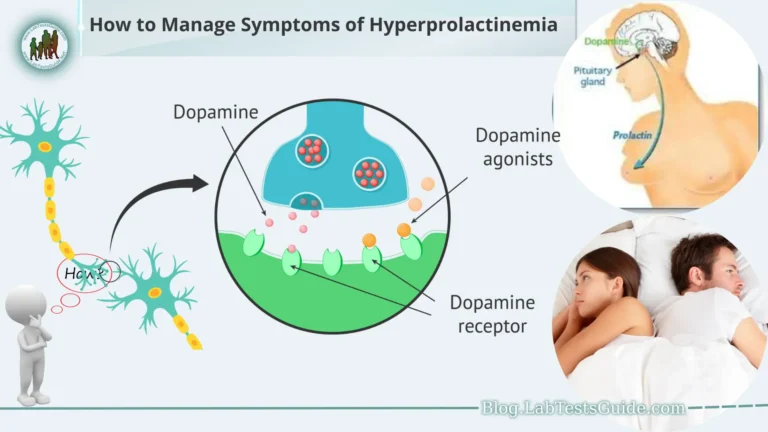Manage high blood sugar levels is crucial for individuals who have diabetes or are at risk of developing it. High blood sugar, also known as hyperglycemia, occurs when the glucose (sugar) levels in the blood are elevated. It is a common problem for people with diabetes and can lead to various health complications if left uncontrolled.

In this guide, we will explore the importance of preventing and managing high blood sugar levels. We will discuss the risks and complications associated with high blood sugar and provide strategies to help you maintain healthy blood sugar level.
Definition of high blood sugar levels:
High blood sugar levels, also known as hyperglycemia, refer to an excessive concentration of glucose (sugar) in the bloodstream. Glucose is the primary source of energy for the body’s cells, and it is regulated by the hormone insulin, which helps transport glucose from the blood into the cells.
Understanding High Blood Sugar:
Causes of High Blood Sugar:
- Insufficient Insulin Production: In type 1 diabetes, the immune system mistakenly attacks and destroys the insulin-producing cells in the pancreas, resulting in little to no insulin production.
- Insulin Resistance: In type 2 diabetes, the body’s cells become resistant to the effects of insulin, impairing its ability to transport glucose from the bloodstream into the cells.
- Inadequate Medication Management: Incorrect or inadequate use of diabetes medications, such as insulin or oral medications, can contribute to high blood sugar levels.
- Unhealthy Diet: Consuming excessive amounts of carbohydrates, especially refined sugars and high-glycemic foods, can lead to elevated blood sugar levels.
- Lack of Physical Activity: Regular exercise helps improve insulin sensitivity and glucose utilization, so a sedentary lifestyle can contribute to high blood sugar.
- Stress and Illness: Stressful situations and certain illnesses can raise blood sugar levels due to the release of stress hormones that interfere with insulin action.
Symptoms of High Blood Sugar:
- Increased thirst and frequent urination
- Fatigue and weakness
- Blurred vision
- Dry mouth
- Slow-healing wounds or frequent infections
- Recurring yeast infections (such as thrush)
- Unexplained weight loss (in type 1 diabetes)
- Increased hunger (in type 2 diabetes)
- Nausea and vomiting (in severe cases)
Prevention of High Blood Sugar:
Here are key strategies to help prevent high blood sugar.
Healthy Eating Habits:
- Balanced Diet: Consume a well-balanced diet that includes a variety of fruits, vegetables, whole grains, lean proteins, and healthy fats.
- Portion Control: Be mindful of portion sizes to avoid overeating and excessive calorie intake.
- Low Glycemic Index Foods: Choose foods with a low glycemic index, as they cause a slower rise in blood sugar levels. Examples include whole grains, legumes, and non-starchy vegetables.
- Avoidance of Sugary Beverages: Limit or avoid sugary drinks such as soda, fruit juices, and sweetened teas, as they can cause rapid spikes in blood sugar.
Regular Physical Activity:
- Benefits of Exercise: Engage in regular physical activity to improve insulin sensitivity and help control blood sugar levels. Exercise also promotes weight management and overall well-being.
- Recommended Exercise Guidelines: Aim for at least 150 minutes of moderate-intensity aerobic exercise per week, spread across several days. Incorporate strength training exercises to build muscle mass.
- Weight Management: Maintain a healthy body weight or strive towards achieving a healthy weight. Losing excess weight, if overweight or obese, can improve insulin sensitivity and blood sugar control.
- Stress Management: Implement stress-reduction techniques such as deep breathing exercises, meditation, yoga, or engaging in hobbies and activities that help alleviate stress. Chronic stress can contribute to elevated blood sugar levels.
- Regular Monitoring of Blood Sugar Levels: Monitor blood sugar levels regularly, as recommended by a healthcare professional. This helps detect any fluctuations or elevations in blood sugar early on, allowing for timely intervention.
By adopting these preventive measures, individuals can significantly reduce the risk of developing high blood sugar levels and better manage their overall health. It is important to consult with a healthcare professional or registered dietitian for personalized guidance and support in implementing these strategies.
How to Manage High Blood Sugar:
Here are strategies to effectively manage high blood sugar.
Medication and Insulin Management:
- Oral Medications: Take prescribed oral medications as directed by a healthcare professional to help control blood sugar levels.
- Insulin Therapy: For individuals with type 1 diabetes or advanced type 2 diabetes, insulin therapy may be necessary. Administer insulin as prescribed and follow the recommended injection techniques.
Meal Planning and Carbohydrate Counting:
- Work with a registered dietitian or diabetes educator to create a personalized meal plan that aligns with your dietary needs and blood sugar goals.
- Learn carbohydrate counting to manage your carbohydrate intake, as carbohydrates have the most significant impact on blood sugar levels.
Blood Sugar Monitoring and Self-Testing:
- Regularly monitor your blood sugar levels using a glucose meter. This helps track your blood sugar trends and determine the effectiveness of your management strategies. Follow the recommended frequency of testing advised by your healthcare professional.
Lifestyle Modifications:
- Dietary Changes: Make healthy food choices by emphasizing whole foods, lean proteins, high-fiber options, and limiting processed foods, sugary snacks, and beverages.
- Physical Activity: Engage in regular exercise to improve insulin sensitivity, promote weight management, and lower blood sugar levels. Consult with a healthcare professional to determine the appropriate exercise regimen.
- Stress Reduction Techniques: Implement stress management techniques like relaxation exercises, mindfulness, or engaging in activities that promote well-being.
- Regular Medical Check-ups: Schedule regular check-ups with your healthcare team, including your primary care physician and endocrinologist. They can assess your overall health, monitor your blood sugar control, and make any necessary adjustments to your treatment plan.
- Support Networks and Education: Seek support from diabetes support groups, online communities, or educational programs. Stay informed about the latest research, treatment options, and self-care practices related to managing high blood sugar.
Remember, effective blood sugar management is a personalized process. Work closely with your healthcare team to develop an individualized plan that suits your needs, and communicate any concerns or challenges you may encounter along the way.
Emergency Measures for High Blood Sugar:
Here are some emergency measures to take.
Recognizing Severe Hyperglycemia Symptoms:
- Extreme thirst and dry mouth
- Rapid and deep breathing
- Nausea or vomiting
- Weakness and confusion
- Fruity-scented breath
- Abdominal pain
Steps to Take in Case of Emergency:
- Test Blood Sugar: Check your blood sugar level using a glucose meter if possible to confirm high blood sugar.
- Stay Hydrated: Drink plenty of water or sugar-free fluids to prevent dehydration. Avoid sugary drinks.
- Seek Medical Assistance: Contact your healthcare professional, especially if blood sugar levels remain high or if you experience severe symptoms.
- Follow Medical Advice: Follow any instructions provided by your healthcare professional, which may include adjusting medication doses or seeking immediate medical attention.
- Do Not Skip Insulin: If you require insulin and have missed a dose, consult your healthcare professional before administering a correction dose.
It is important to note that these emergency measures are temporary and should not replace long-term management strategies. Regular monitoring of blood sugar levels and close communication with your healthcare team are essential to prevent future emergencies and maintain optimal blood sugar control.
FAQs:
What is considered a high blood sugar level?
A fasting blood sugar level above 126 mg/dL (7.0 mmol/L) on two separate occasions is generally considered indicative of diabetes. Random blood sugar levels above 200 mg/dL (11.1 mmol/L) accompanied by symptoms may also suggest high blood sugar.
Can high blood sugar be prevented if I have a family history of diabetes?
While a family history of diabetes increases your risk, it does not guarantee that you will develop high blood sugar. However, adopting a healthy lifestyle with a balanced diet, regular exercise, and weight management can significantly reduce the risk.
Can I manage high blood sugar without medication?
Depending on the severity of high blood sugar and the individual’s overall health, lifestyle modifications such as dietary changes, exercise, and weight management may be sufficient to manage blood sugar levels. However, some individuals may require medications or insulin therapy to effectively control high blood sugar.
How often should I monitor my blood sugar levels?
The frequency of blood sugar monitoring may vary depending on individual circumstances, such as the type of diabetes and the treatment plan. Your healthcare professional will provide specific guidelines on when and how often to check your blood sugar levels.
Are there any natural remedies or supplements to lower high blood sugar?
Some natural remedies and supplements, such as chromium, cinnamon, and alpha-lipoic acid, have shown potential in helping to lower blood sugar levels. However, it is essential to consult with a healthcare professional before starting any supplements, as they can interact with medications and may not be suitable for everyone.
Can stress affect blood sugar levels?
Yes, stress can raise blood sugar levels due to the release of stress hormones that interfere with insulin action. It is important to incorporate stress management techniques into your routine, such as exercise, relaxation exercises, or engaging in activities that promote well-being.
Can weight loss help improve high blood sugar levels?
Yes, weight loss, especially in individuals who are overweight or obese, can improve insulin sensitivity and blood sugar control. A combination of a healthy diet, regular physical activity, and weight management can be beneficial in managing high blood sugar.
Conclusion:
In conclusion, preventing and managing high blood sugar levels is of utmost importance for individuals with diabetes and those at risk of developing the condition. By implementing effective strategies and making lifestyle changes, individuals can significantly reduce the risk of complications associated with high blood sugar. Understanding the causes and symptoms of high blood sugar is crucial for early detection and intervention. Prevention involves adopting healthy eating habits, engaging in regular physical activity, managing weight, reducing stress, and monitoring blood sugar levels






